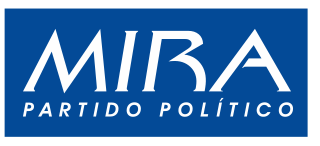A two-party system is a party system where two major political parties dominate the government. One of the two parties typically holds a majority in the legislature and is usually referred to as the majority or governing party while the other is the minority or opposition party. Around the world, the term has different senses. For example, in the United States, Jamaica, and Malta, the sense of two-party system describes an arrangement in which all or nearly all elected officials belong to one of the only two major parties, and third parties rarely win any seats in the legislature. In such arrangements, two-party systems are thought to result from various factors like winner-takes-all election rules. In such systems, while chances for third-party candidates winning election to major national office are remote, it is possible for groups within the larger parties, or in opposition to one or both of them, to exert influence on the two major parties. In contrast, in the United Kingdom and Australia and in other parliamentary systems and elsewhere, the term two-party system is sometimes used to indicate an arrangement in which two major parties dominate elections but in which there are viable third parties which do win seats in the legislature, and in which the two major parties exert proportionately greater influence than their percentage of votes would suggest.

The Prime Minister of Spain, officially the President of the Government of Spain, is the head of the government of Spain. The office was established in its current form by the Constitution of 1978 and originated in 1823 as a chairmanship of the extant Council of Ministers.

The Spanish Socialist Workers' Party is a social-democratic political party in Spain. The PSOE has been in government for a longer time than any other political party in modern democratic Spain: from 1982 to 1996 under Felipe González; from 2004 to 2011 under José Luis Rodríguez Zapatero, and currently since 2018 under Pedro Sánchez.

The Congress of Deputies is the lower house of the Cortes Generales, Spain's legislative branch. It is located in the Palace of the Parliament.

The People's Party is a conservative, liberal-conservative and Christian-democratic political party in Spain. It is one of the four major parties of modern Spanish politics.

Convergence and Union was a Catalan nationalist electoral alliance in Catalonia, Spain. It was a federation of two constituent parties, the larger Democratic Convergence of Catalonia (CDC) and its smaller counterpart, the Democratic Union of Catalonia (UDC). It was dissolved on 17 June 2015.

There are four types of elections in Spain: general elections, elections to the legislatures of the autonomous communities, local elections and elections to the European Parliament. General elections and elections to the legislatures of the autonomous communities are called after the mandate of the national or regional legislature expires, usually four years after the last election, although early elections may occur. Elections to local councils and to the European Parliament are held on fixed dates. For most elections party list PR is used, but the plurality system is used for the Senate.
The constitutional status of Catalonia is currently subject to a dispute between the Government of Spain, which view it as an autonomous community within the Kingdom of Spain and the unilaterally declared Catalan Republic, which view it as an independent sovereign state. The Politics of Catalonia operate within this context and are primarily related to the Generalitat de Catalunya institutional system, including the Parliament of Catalonia, the President and the Executive Council.

The Independent Movement of Absolute Renovation is a social and political party in Colombia, founded on March 21, 2000 by 51,095 Colombians led by lawyer and former senator Carlos Alberto Baena and Alexandra Moreno Piraquive. The party also has functions as a non-profit organization. It has representation in the Chamber of Representatives and in the Senate of the Congress of the Republic of Colombia, and has also participated in the public corporations of Colombia at a regional level, being stated as the eight most influential political force in the country.

Democratic and Social Centre was a liberal political party in Spain, which was founded in 1982 by Adolfo Suárez, former Prime Minister of Spain. The party was a member of the Liberal Democratic and Reformist Group in the European Parliament and the Liberal International. In 2006, most of its remaining members merged into the People's Party.

The People's Alliance was a post-Francoist electoral coalition, and later a conservative political party in Spain, founded in 1976 as federation of political associations. Transformed into a party in 1977 and led by Manuel Fraga, it became the main conservative right-wing party in Spain. It was refounded as the People's Party in 1989.

Legislative elections were held in Spain on 16 February 1936. At stake were all 473 seats in the unicameral Cortes Generales. The winners of the 1936 elections were the Popular Front, a left-wing coalition of the Spanish Socialist Workers' Party (PSOE), Republican Left (Spain) (IR), Esquerra Republicana de Catalunya (ERC), Republican Union (UR), Communist Party (PCE), Acció Catalana (AC) and other parties. Their coalition commanded a narrow lead over the divided opposition in terms of the popular vote, but a significant lead over the main opposition party, Spanish Confederation of the Autonomous Right (CEDA), in terms of seats. The election had been prompted by a collapse of a government led by Alejandro Lerroux, and his Radical Republican Party. Manuel Azaña would replace Manuel Portela Valladares, caretaker, as prime minister, after what were widely considered fair elections – although limited cases of electoral fraud did occur. They were the last of three legislative elections held during the Spanish Second Republic, coming three years after the 1933 general election which had brought the first of Lerroux's governments to power. The poor result for the political right would help bring about the July coup, and the ensuing civil war. The right-wing military coup initiated by Gens. Sanjurjo and Franco ultimately brought about the end of parliamentary democracy in Spain until the 1977 general election.

Elections to Spain’s legislature, the Cortes Generales, were held on 19 November 1933 for all 473 seats in the unicameral Cortes of the Second Spanish Republic. Since the previous elections of 1931, a new constitution had been ratified, and the franchise extended to more than six million women. The governing Republican-Socialist coalition had fallen apart, with the Radical Republican Party beginning to support a newly united political right.

The Green Alliance is a Colombian political party located in the centre of the political spectrum. The party advocates social justice, electoral reform and economic sustainability.

The political party strength in Puerto Rico has been held by different political parties in the history of Puerto Rico. Today, that strength is primarily held by two parties, namely:

The Animalist Party Against Mistreatment of Animals is a Spanish political party founded in Bilbao on 24 February 2003. It is focused on animal rights and animal welfare, as a part of the requirement of respect for the right to life. Although its headquarters was initially in Barcelona, it is now established in Madrid.
Coalició Compromís is a Valencianist political party, originally an electoral coalition, in the Valencian Community, Spain. The parties involved include the Valencian Nationalist Bloc, the left-wing Valencian People's Initiative, and a group of environmentalist and independent parties. Together they defend Valencianist, progressive and ecological politics.

The Working People's Party is a Puerto Rican political party. It was founded on December 5, 2010, in the city of San Juan, Puerto Rico, by a group of activists, students, teachers, professors, union workers, actors, and public and private employees. As of 2016, the party has no opinion on the issue of the political status of Puerto Rico, instead saying that they believe the decision should be made by the people of Puerto Rico.
Podemos is a political party in Spain founded in January 2014 by political scientist Pablo Iglesias in the aftermath of the 15-M Movement protests against inequality and corruption. Podemos is a left-wing populist party that seeks to address the problems of inequality, unemployment and economic malaise that followed in the wake of the European debt crisis. Podemos has called for a renegotiation of austerity measures and seeks to curtail the Treaty of Lisbon. The term "populist" is sometimes used by political opponents to refer to the party in a pejorative way.
















